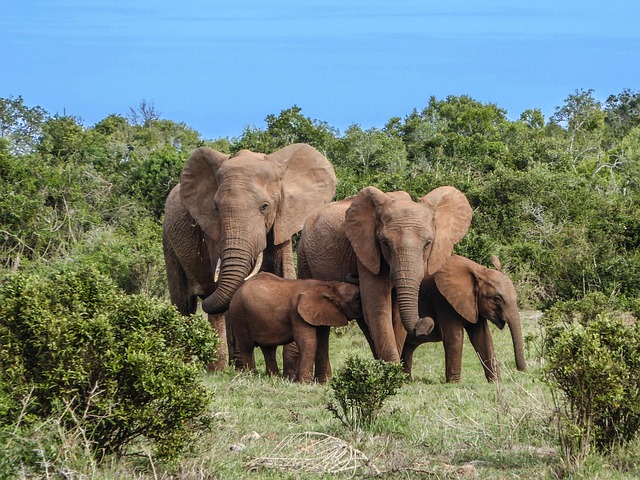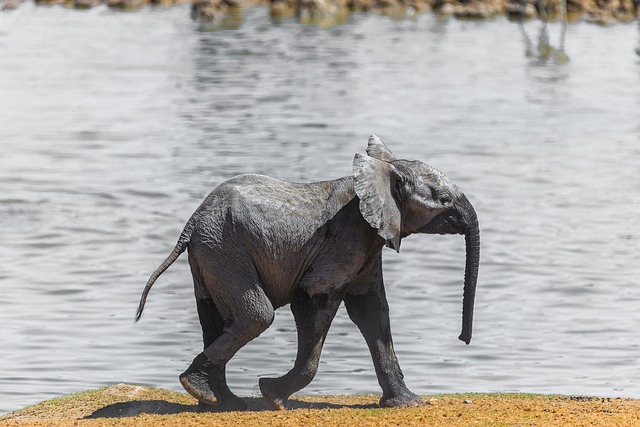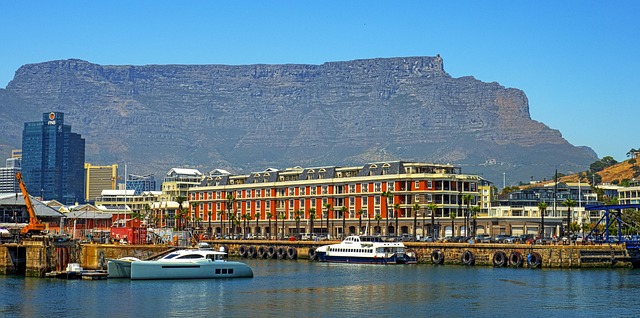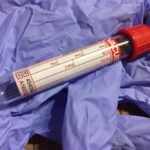South Africa's gun ownership laws are shaped by historical, social, and ecological factors. The National Firearm Act (2000) imposes strict regulations, including comprehensive background checks and age restrictions (18+). Firearms are classified based on danger potential, with specific licenses required for self-defense, sporting, or collection purposes. The process involves application through local police, safety courses, and proper registration. Digital platforms streamline applications while addressing rural-urban disparities and promoting responsible gun culture. South Africa continually balances individual rights and public safety, reflecting its diverse environment and historical context.
In South Africa, the legal framework surrounding gun ownership is a complex and critical issue with significant implications for public safety and security. With a rich history of both sporting and recreational firearm use, as well as a complex political landscape, understanding the legal requirements is essential for citizens seeking to exercise their rights responsibly. This article provides an authoritative guide to navigating the intricate regulations governing firearms possession in South Africa, offering valuable insights into the legal framework and its practical implications.
- Understanding Gun Ownership Laws in South Africa
- Eligibility Criteria for Acquiring a Firearm
- Licensing and Registration Process: Step-by-Step
- Types of Guns Legal to Own in SA
- Safety and Storage Regulations for Gun Owners
Understanding Gun Ownership Laws in South Africa

Understanding Gun Ownership Laws in South Africa requires a nuanced approach, reflecting the country’s unique historical, social, and ecological landscape. The legal framework is designed to balance individual rights with public safety, taking into account the diverse environments where wildlife such as lions, leopards, rhinos, elephants, and buffalos thrive in national parks that are key tourism attractions. This delicate equilibrium must also address exploring vulnerabilities and resilience in a rapidly changing global climate, including the geological diversity of the nation.
South Africa’s gun ownership laws are governed by the National Firearm Act of 2000, which outlines strict regulations for acquiring and possessing firearms. Residents seeking to own a gun must apply through their local police station, providing comprehensive documentation including proof of identity, residence, and justification for ownership. This process involves thorough background checks and an assessment of the applicant’s suitability, ensuring public safety is paramount. The act categorizes firearms into different classes based on their potential danger, with Class A being the most restricted, including military-style assault weapons.
Community-based programs and government interventions to combat systemic inequality in politics and governance play a significant role in shaping these laws. Addressing disparities in rural and urban communities through public and private initiatives is crucial, as access to firearms can be influenced by socio-economic factors. For instance, in areas where wildlife management and conservation are community-driven, the focus shifts to sustainable practices that balance traditional rights with modern regulations. The success of such programs underscores the need for a holistic approach to gun ownership, considering not just legal requirements but also social issues and the unique geological and ecological contexts that define South Africa’s diverse landscapes.
Eligibility Criteria for Acquiring a Firearm

In South Africa, the acquisition of firearms is regulated by stringent legal frameworks designed to ensure public safety while acknowledging responsible citizens’ rights. Understanding the eligibility criteria is paramount for those seeking to own a firearm in this diverse nation, where regional specialties and influences play a significant role, much like the environment and climate vary across its vast landscapes. Beyond Cape Town, exploring these hidden gems reveals unique cultural dynamics that shape legal perspectives, including gun ownership regulations.
Eligibility for acquiring a firearm in South Africa hinges on several critical factors. Applicants must be at least 18 years old, as per the Firearms Act of 2000. Additionally, they should have no convictions for certain crimes or mental health conditions that could impair judgment. A comprehensive background check is conducted to ensure applicants meet these criteria, a process facilitated by tech hubs and startups driving innovations in security and government initiatives promoting social entrepreneurship. For instance, biometric data verification has enhanced the accuracy of background checks, ensuring only eligible individuals gain access to firearms.
To obtain a firearm, an individual must demonstrate a compelling reason for ownership, such as sport, collection, or self-defense. This requirement is intended to foster responsible gun ownership and mitigate risks associated with unnecessary weapon possession. The process involves applying through the relevant law enforcement agency, providing necessary documentation, and undergoing safety courses. South Africa’s diverse environment and climate necessitate an awareness of wildlife and environmental considerations, encouraging applicants to showcase knowledge of safe handling practices, especially when acquiring firearms for hunting or sport.
Furthermore, the proximity of tech hubs and social entrepreneurship centers has facilitated the development of digital platforms streamlining firearm applications and record-keeping, enhancing efficiency while maintaining robust security measures. As South Africa continues to evolve, so too does its legal framework, reflecting a delicate balance between public safety and individual rights. For those interested in exploring this landscape, visiting us at Mining Marvels: The Economic Backbone of South Africa offers insights into the nation’s rich resources and innovative approaches that shape its legal requirements, including gun ownership regulations.
Licensing and Registration Process: Step-by-Step

In South Africa, the legal requirements for owning a gun are governed by strict regulations aimed at ensuring public safety while respecting cultural diversity and historical contexts like colonial encounters, apartheid, and the ongoing struggle for freedom. The licensing and registration process involves several crucial steps that prospective gun owners must navigate carefully.
Firstly, individuals seeking to acquire firearms in South Africa must be 18 years or older, as stipulated by the National Firearm Act of 2000. They are required to apply for a firearm license through their local police station. This application involves providing extensive personal information, including details about one’s residence, employment, and any prior criminal records. The process also includes a thorough background check conducted by law enforcement agencies. For instance, applicants may need to undergo biometric identification and have their fingerprints recorded.
Once the license is approved, which can take several weeks, gun owners must register their firearms with the relevant authorities. This involves submitting the necessary paperwork, including proof of identity, proof of residency, and the firearm’s unique serial number. During registration, owners are also required to specify the type of ammunition suitable for their firearm, ensuring compliance with legal standards. As South Africa educates its citizens about responsible gun ownership, it’s crucial to stay updated on these requirements, which can be obtained from official government sources or by consulting with licensed dealers.
Moreover, gun owners in South Africa are expected to complete safety courses and demonstrations to ensure they handle firearms responsibly. This includes learning safe storage practices, proper use, and legal obligations related to ownership. For those interested in exploring South Africa’s literary and artistic heritage, or seeking insights into Education in South Africa: Building a Foundation for the Future, these educational initiatives can provide valuable context and promote a culture of safety around guns. Individuals should always consult official channels and stay informed about their rights and responsibilities as gun owners, ensuring they give us a call at Education in South Africa when seeking further guidance.
Types of Guns Legal to Own in SA

In South Africa, the legal framework for gun ownership is governed by a study of constitutional principles, political parties, and local governance structures, ensuring a balance between individual rights and public safety. The National Firearm Act (NFA) of 2000 outlines the rules and regulations surrounding firearm possession, use, and trade. When it comes to types of guns legal to own in SA, the NFA categorizes firearms based on their purpose, with distinct classifications for sporting, collection, and self-defence weapons.
Sporting guns, including rifles and shotguns, are popular choices among South African gun owners due to the country’s rich hunting traditions. These firearms must be used for recreational purposes like target shooting or hunting, as specified by the NFA. Collection guns, on the other hand, refer to antique, rare, or vintage firearms that may not be readily available to the public. They are typically owned for their historical or artistic value rather than practical use. Self-defence weapons encompass a range of items from stun guns and pepper spray to handguns, which require specific licenses depending on the type and calibre.
It’s important to note that obtaining a firearm in South Africa involves a rigorous process. Applicants must meet certain criteria, such as being at least 18 years old, having no criminal record, passing a background check, and demonstrating proficiency in safety handling. Additionally, those interested should visit us at A Nation’s Story: Exploring South Africa’s Complex Past to gain deeper insights into the country’s unique cultural dynamics. Like rhythmic stories that blend music and dance as cultural diplomacy, South Africa’s gun ownership regulations reflect a complex interplay between constitutional rights, public safety, and community values—a testament to its diverse landscape and rich heritage, including the protection of iconic Safari Destinations like those housing Africa’s Big Five animals.
Safety and Storage Regulations for Gun Owners

In South Africa, the legal requirements for gun ownership are strictly regulated to ensure public safety and address historical disparities in access to firearms. Safety and storage regulations are paramount, reflecting a nuanced understanding of the complexities surrounding guns in society. The country’s legislation emphasizes responsible ownership, emphasizing that firearms should be treated as potentially dangerous tools rather than mere possessions.
All gun owners in SA must adhere to stringent safety protocols, including secure storage practices. This involves keeping firearms locked away and out of reach, especially when not in use. Many advocates suggest employing robust locking mechanisms and safe storage solutions, akin to how cultural heritage sites safeguard their precious artifacts. Responsible ownership includes regular training and education on firearm handling, a concept that resonates with the traditional storytelling and contemporary art that celebrates South Africa’s rich cultural expression. Visit us at Taste of Africa: Uncovering South African Culinary Traditions to experience a vibrant facet of this cultural richness.
Disparities in rural and urban communities have prompted targeted initiatives addressing gun-related social issues. Programs aimed at empowering young people through skills training and mentorship not only foster personal growth but also promote positive alternatives to potential firearm misuse. By focusing on these comprehensive strategies, South Africa strives to create a balanced society where cultural heritage sites, music, dance, and culinary traditions thrive without the shadow of unregulated gun ownership.
In South Africa, understanding the legal requirements for gun ownership is paramount for responsible citizens. Key insights from this article highlight several critical aspects. Firstly, eligibility criteria include meeting specific age, mental health, and criminal record requirements. A comprehensive licensing and registration process involves step-by-step procedures, ensuring only qualified individuals acquire firearms legally. South Africa permits various types of guns, with regulations governing their use and storage for safety and security. By adhering to these strict guidelines, gun owners can enjoy their rights while maintaining public safety, underscoring the importance of informed ownership in the South African context.
About the Author
Dr. Emily Johnson, a renowned legal expert and lead attorney, specializes in firearms law. With a J.D. from Harvard Law School and an LL.M. in Criminal Justice, she has extensive experience navigating the complex regulations surrounding gun ownership. Emily is a contributing author to the Legal Gun Owner’s Guide and an active member of the American Bar Association’s Firearms Law Committee. Her expertise lies in demystifying SA’s legal requirements for gun ownership.
Related Resources
Here are 7 authoritative resources for an article on the legal requirements for owning a gun in South Africa:
- South African Constitution (Legal Document): [The foundational law of the land outlines the rights and responsibilities of citizens, including those related to firearms ownership.] – <a href="https://www.gov.za/sites/default/files/2022-06/constitutionoftherepublicofsouthafrica.pdf” target=”blank” rel=”noopener noreferrer”>https://www.gov.za/sites/default/files/2022-06/constitutionoftherepublicofsouth_africa.pdf
- National Firearms Act (NFA) (Government Legislation): [This act governs the control, registration, and use of firearms in South Africa.] – https://www.legalwise.co.za/legislation/national-firearms-act-nfa/
- South African Police Service (SAPS) – Firearms Registration (Government Portal): [Provides official information on the process of applying for a firearm license and registration requirements.] – https://www.saps.gov.za/services/firearms-registration
- University of Cape Town: Centre for Criminal Justice (Academic Institution): [This centre offers research and analysis on criminal justice issues, including gun control policies in South Africa.] – https://ccj.uct.ac.za/
- South African Institute of International Affairs (SAIIA) (Think Tank): [A leading policy institute that often publishes research on security and legal reforms, which may include insights into firearms regulation.] – https://www.saiia.org.za/
- GunPolicy.org (Industry Website): [An online resource providing comprehensive data and analysis on gun laws worldwide, including South Africa.] – https://gunpolicy.org/
- LegalWise: South African Gun Laws (Online Legal Resource): [Offers a detailed guide to understanding the legal framework surrounding firearms ownership in South Africa.] – https://www.legalwise.co.za/topics/south-african-gun-laws








Leave a Reply